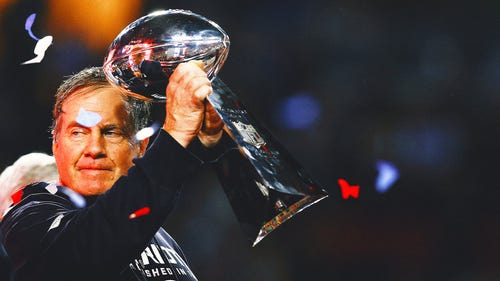
NFL asks court to toss lawsuits
The NFL moved Thursday to try to shut down lawsuits filed by thousands of former players who say they suffered or fear suffering permanent brain injuries from football-related concussions, calling the issue a ''labor dispute'' that should be resolved not by courts but by terms of the collective bargaining agreement.
The players accuse the NFL of negligence and say league officials concealed known medical links between concussions and brain injuries, leading many of them to suffer from dementia or Alzheimer's disease, or be at an increased risk of reckless or suicidal behavior.
In a motion to dismiss the suits filed late Thursday, the NFL argues that the collective bargaining agreement covers safety and health rules -- while delegating to each team decisions about a player's condition and when he should return to play. And the league said the suits lack any specific proof of concealment.
''To the extent that plaintiffs have a claim addressing injuries incurred during their NFL careers, that claim may only proceed pursuant to the grievance procedures set forth in the CBAs,'' the motion said.
About 140 NFL concussion lawsuits have been consolidated in federal court in Philadelphia before U.S. District Judge Anita B. Brody. Unless Brody agrees to dismiss them early on, or an umbrella settlement is reached, she will likely decide what evidence can be used at trial, whether a class can be certified for medical monitoring and other pretrial issues. The cases might then return to their home district for trial.
According to an Associated Press analysis, 3,377 players have sued the NFL, charging that not enough was done to inform them of the dangers of concussions in the past, or to take care of them today. That tally includes at least 26 Hall of Famers. There are 5,249 total plaintiffs, including spouses, other relatives and player representatives.
The lead plaintiff in an early concussion lawsuit filed last year, former Atlanta Falcons safety Ray Easterling, committed suicide in April at age 62. An autopsy found he had the degenerative brain disease CTE, or chronic traumatic encephalopathy. His widow remains a plaintiff.
Other players have told The Associated Press that they were put back into games after devastating hits, and were fed painkillers by team doctors before games to mask their pain.
Tony Dorsett, the Heisman Trophy winner and former Dallas Cowboys star who played in the NFL from 1977-88, attributes his memory problems to the hits and concussions he suffered in his 12-year career, including one that knocked him out cold in a 1984 game against Philadelphia. He nevertheless returned to the field, he said.
''Did they know it was a concussion?'' Dorsett, a plaintiff, asked rhetorically in an AP interview. ''They thought I was half-dead.''
Doctors now say the regions of his brain that control organization and memory are not getting enough oxygen, Dorsett said.
The league said that at least two federal courts have agreed that the collective bargaining agreement dictates a player's right to compensation for injuries, once in a suit involving the late Dave Duerson, who killed himself last year.
The Minnesota Supreme Court likewise refused to let the widow of Vikings lineman Korey Stringer pursue a wrongful death suit after he died of heatstroke following a 2001 practice, on grounds the claim was trumped by the collective bargaining agreement. Stringer's wife later settled with the NFL over a negligence claim.
The league, meanwhile, insists that player safety has long been a priority.
''Any allegation that the NFL intentionally sought to mislead players has no merit. It stands in contrast to the league's actions to better protect players and advance the science and medical understanding of the management and treatment of concussions,'' the league said in a statement earlier this year.
---
Associated Press news researcher Judy Ausuebel and projects editor Brooke Lansdale contributed to this report from New York.










